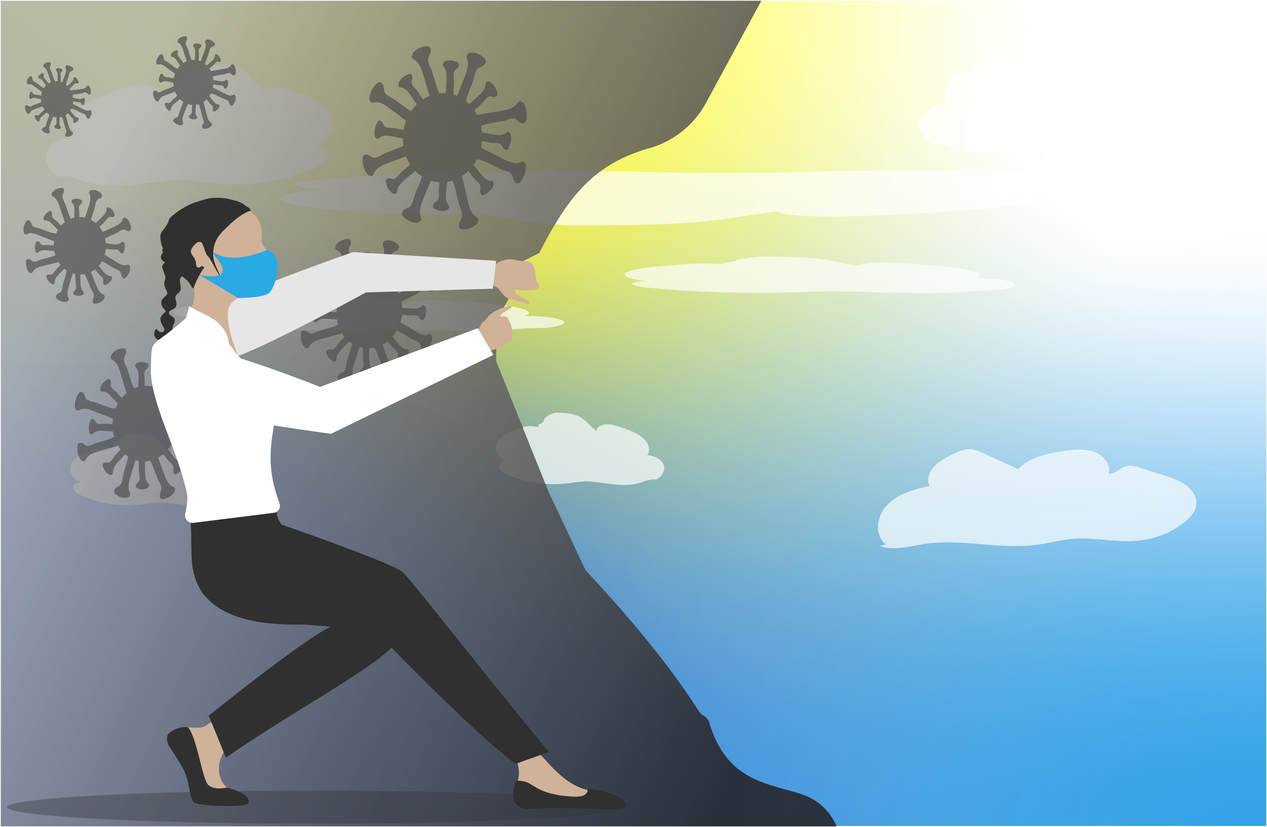Slowly yet surely, signs of pandemic recovery are growing stronger in Rhode Island and Massachusetts. COVID-19 vaccinations are rolling along, and the governors have loosened restrictions on businesses and gatherings.
How do you feel about this light at the end of the tunnel? Many people are eager to reunite with family members, schedule lunch dates and go shopping. But if you’re grieving a loss, you might feel very differently.
“It’s been a year of horrific events and a lot of anxiety and uncertainty. This has not made the grief easier. It has complicated it,” says Deanna Upchurch, director of clinical outreach services for HopeHealth. (A grief expert, she recently discussed pandemic grief with the New York Times.)
Deanna is concerned about the pandemic’s lingering psychological effects on people grieving a death or other loss. However, she takes heart seeing how the crisis validated the importance of hospice care and shared humanity through trying times.
Virtual grief support was a lifeline during forced isolation
It took HopeHealth only two weeks to bring its grief support groups online after the lockdowns of March 2020. The grief support team turned into Zoom specialists and helped participants get up to speed on videoconferencing technology. HopeHealth’s virtual format was so popular that participation in the groups more than doubled over pre-pandemic totals.
We all cope with loss in different ways. Deanna Upchurch of HopeHealth explains in the New York Times story: There Is No Vaccine for Grief.
For folks who couldn’t get online, staff made old-fashioned phone calls. “Many of our family members really enjoy having a once-a-week call from a grief support counselor,” Deanna says. “It’s just a basic human connection that was so desperately needed.”
People in grief need freedom to return to normal when ready
Social distancing requirements left a profound impact on end-of-life experiences and the grief that follows. Many families missed out on proper goodbyes and funerals, so life after coronavirus might mark the very start of their grief journeys.
The emotions of grief also can touch people who experienced loss other than death. Deanna’s team has counseled frontline workers throughout the pandemic, and she thinks the months ahead could trigger painful memories. In addition, people who know someone affected by the coronavirus may grapple with survivors’ guilt.
“We should anticipate that as we move back to normal, our friends who are grieving are going to take a little longer to come around,” Deanna says. “We need to be cautious, ambivalent, considerate — all of those things.”

